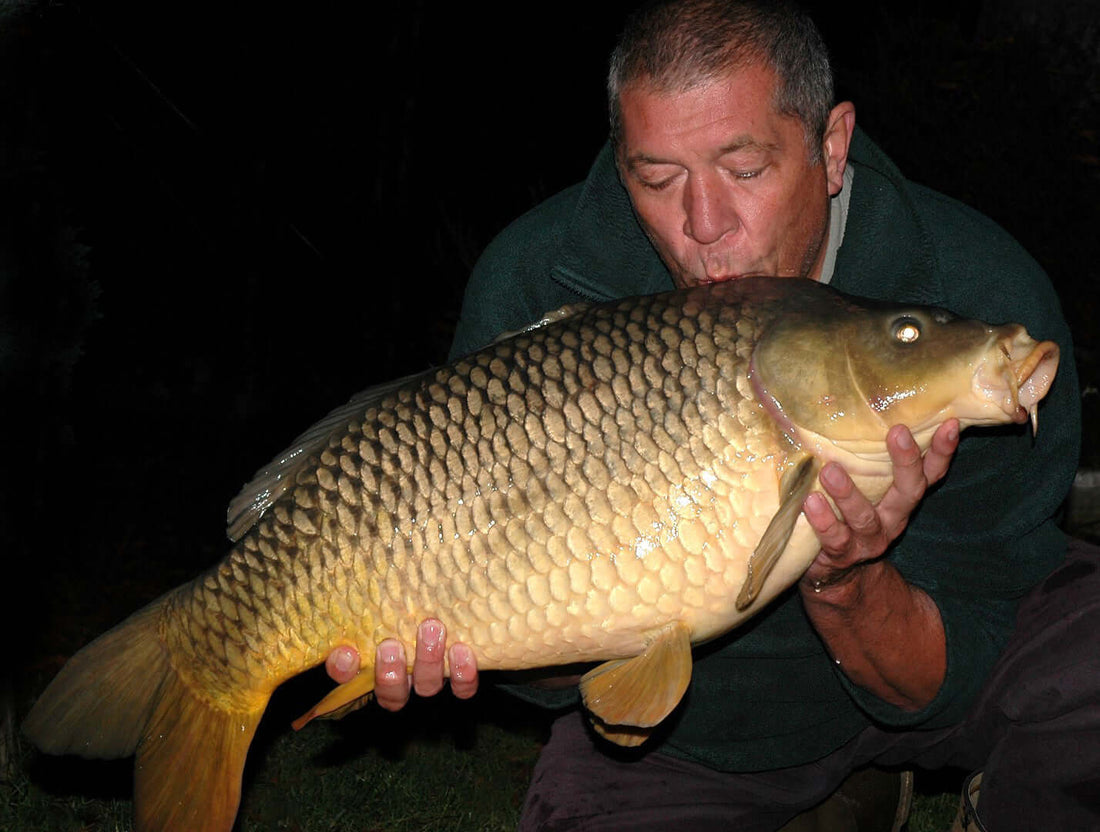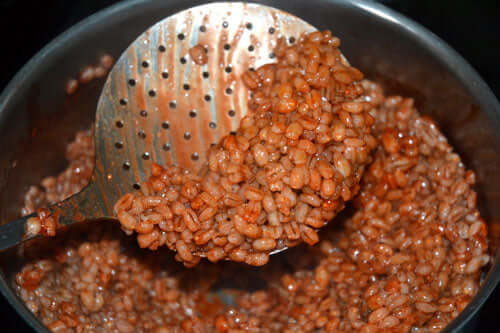
Fishing Ideas revisited
Share
Here are a few little wheezes we have come up with over the years that you may have missed so we thought it might be an idea to take another look.

We have already outlined a method of using ground tiger nuts to create a boiled bait

Don't forget, however, that you can also use ground tigers as a groundbait/loose feed. As you can see from this photo we don’t make the mistake of milling the nuts to fine, though if tiger nut flour is what you are after, then you can easily reduce our ground version to a 30-mesh flour using a commercial coffee grinder.

To prepare the ground nuts I simply pour on boiling water, stir well and then leave the mix to stand for a few hours to stiffen.

After an overnight soak you will find that they have gone nice and 'gloopy' (technical term).

Here I have blended equal amounts of ground tiger nut and Haith's Red Factor with 5% Robin Red.

Now I mix the blend until I reach a point where the paste is still workable without being too ‘wet’.

This ensures that the paste will form boilie sized paste balls.

I can also form larger groundbait balls if I wish. Remember this paste is made without using beaten eggs, relying purely on water to achieve the correct sticky consistency.

As I just mentioned, our new 'Reds' have been very well received by the trade and by retail customers. Here you can see the ground tiger nut mixed 50/50 with Red Factor with a 5% inclusion rate of the Robin Green.

I am using eggs this time as a binder to create a paste that will break down more slowly than the water-based version shown above. Simply break the eggs into a bowl, add any liquid attractors and whisk.

Add the dry powders to the beaten eggs to form a paste. Here you can see the paste ready to use.

However, I have not finished with it yet, as I now add mini carp pellets to the paste to add still further to the attraction.

You could also use our SuperSoft Pellets instead.

We use paste to introduce attraction into the area we are fishing. One of the best ways of doing this is to mould the paste around the lead, in this case a specialist lead called the Paste Bomb from Fox. The bare Paste Bomb on the right is a 2.5 oz version. The one coated in paste weighs 1.5oz bare but 2.5oz when smothered in paste. This helps enormously if you wish to achieve greater range yet also want to use a lighter lead for delicacy of presentation.

Here the 2.5 oz Paste Bomb has been given its paste overcoat and now weighs over 3.5oz! I am sure all you fans of fishing slack lines and light running leads can see the benefits for yourselves.

One of the best mini pulse baits is adzuki bean. This is a very good source of dietary protein containing all the primarily amino acids and carp love these tiny red beans.

To prepare adzuki beans they must first be soaked over night.

After soaking they will swell up and they absorb water, but you should not use them until you have boiled them for about 10 minutes.

Here you can see the bait after it has been properly prepared.

The resulting bait carpet will be very dark and will blend in nicely on most lakebeds, so this makes adzuki beans an ideal bait for wary carp. However, their natural curiosity often causes the carp to have a momentary lapse of concentration and it will often fall to a bright bait presented as a pop-up hookbait over the top of the bait carpet.

I am sure some of our older readers will remember dear old pearl barley. It was a familiar sight in the stews that Mum used to make when I was a kid and they now feature highly in my list of top mini particle baits. Coincidentally, they also form a vital part of the recipe for Red Band Pigeon Conditioner.

Again they are highly nutritious, with a balanced nutritional profile that is rich in amino acids. By coincidence they also take up colour and flavour exceptionally well. Here I have added both colour and attraction by soaking the pearl barley in a solution of water and paprika oleoresin, one of the finest attractors you could ever wish to put in a carp bait.

They are easy to prepare. As with most particles they CAN be used after a simple overnight soak (or until they have swollen by taking up water). However, eminently preferably in my view is to soak and cook. This causes the grains to soften slightly and to exude a sticky glutinous goo, Bring to the boil and then simmer for 15 minutes or until most of the soak water has been absorbed.

The pearl barley should have the appearance of sticky rice when correctly prepared.

It should slide slowly off a spoon leaving a gooey residue.

One of the best ways to test a bait theory is to try it out in venues where you can see the carp and judge how they react to various baits and baiting situations. Our own Ken Townley is expert at observing, feeding, stalking and then catching carp in these kinds of situations (indeed, one of his early articles on this subject was called Looking in on Carp, which was published in Tim Paisleys 1990 book 'Big Carp'). Here's Ken with a common of 28lb caught from a tiny river. Says Ken, "I actually saw this fish come in on the bait carpet and start feeding. Within a few minutes I watched it pick up the hookbait. Heart-stopping stuff!"




